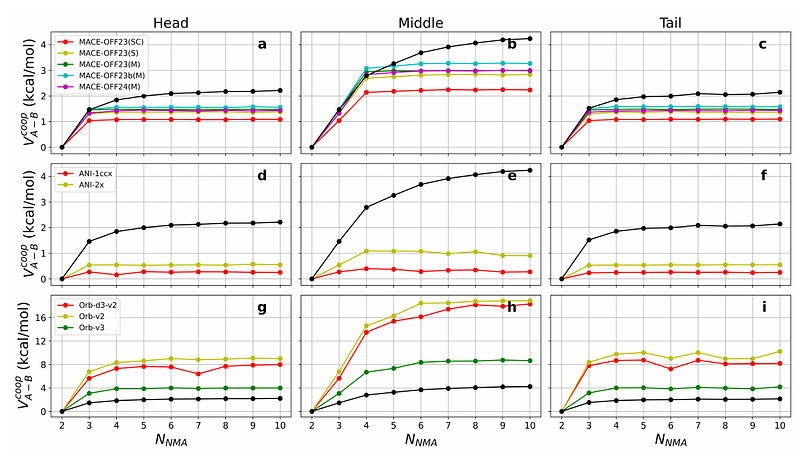Benchmarking Universal Machine Learning Force Fields with Hydrogen-Bonding Cooperativity

Benchmarking Universal Machine Learning Force Fields with Hydrogen-Bonding Cooperativity
Feng, X.; Xu, Y.; Huang, J.
AbstractMachine learning force fields (MLFFs) offer a promising balance between quantum mechanical (QM) accuracy and molecular mechanics efficiency. While MLFFs have shown strong performance in modeling short-range interactions and reproducing potential energy surfaces, their ability to capture long-range cooperative effects remains underexplored. In this study, we assess the ability of three MLFF models - ANI, MACE-OFF, and Orb - to reproduce cooperative interactions arising from environmental induction and dispersion, which are essential for many biomolecular processes. Using a recently proposed framework, we quantify hydrogen bond (H-bond) cooperativity in N-methylacetamide polymers. Our results show that all MLFFs capture cooperativity to some extent, with MACE-OFF yielding the closest agreement with QM data. These findings highlight the importance of evaluating many-body effects in MLFFs and suggest that H-bond cooperativity can serve as a useful benchmark for improving their physical fidelity.